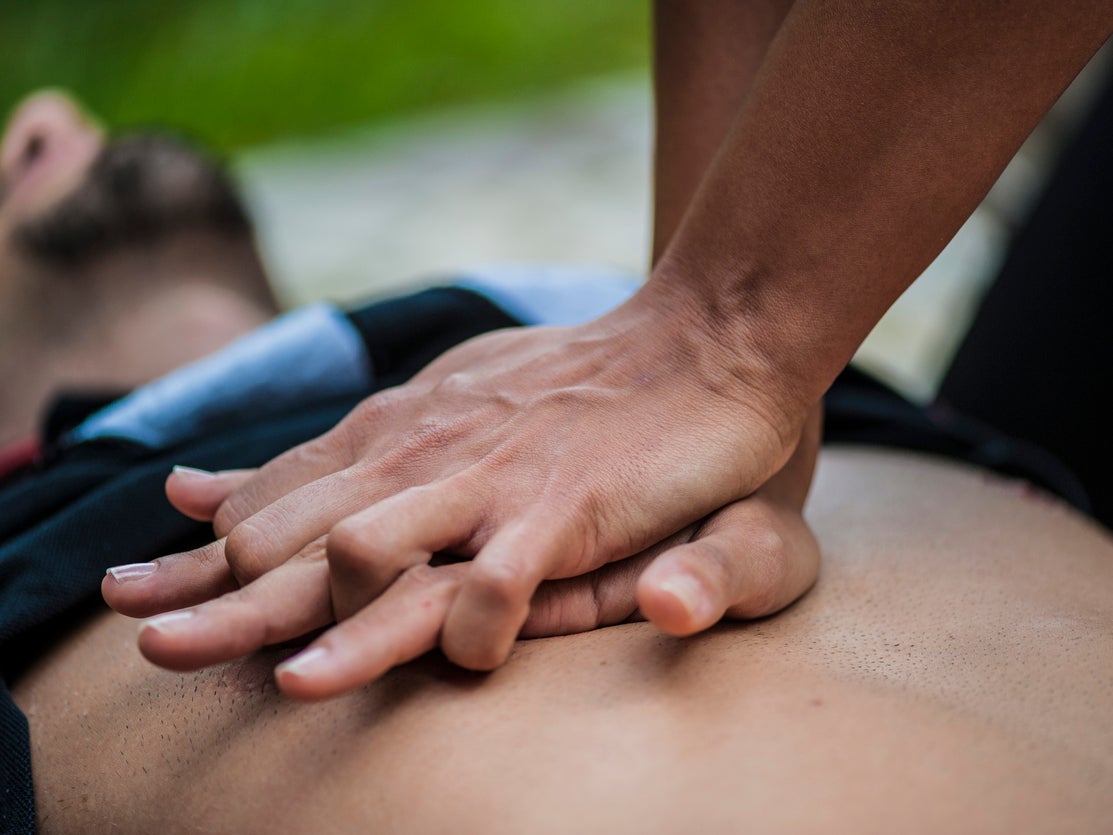Perform CPR to beat of ‘Macarena’ for correct tempo, experts suggest
Los del Río’s ‘Macarena’ has the same beats per minute as Bee Gees’ ‘Stayin’ Alive’

Your support helps us to tell the story
From reproductive rights to climate change to Big Tech, The Independent is on the ground when the story is developing. Whether it's investigating the financials of Elon Musk's pro-Trump PAC or producing our latest documentary, 'The A Word', which shines a light on the American women fighting for reproductive rights, we know how important it is to parse out the facts from the messaging.
At such a critical moment in US history, we need reporters on the ground. Your donation allows us to keep sending journalists to speak to both sides of the story.
The Independent is trusted by Americans across the entire political spectrum. And unlike many other quality news outlets, we choose not to lock Americans out of our reporting and analysis with paywalls. We believe quality journalism should be available to everyone, paid for by those who can afford it.
Your support makes all the difference.Performing CPR to the beat of the “Macarena” could help save someone’s life, experts have claimed in a new study presented at this year’s Euroanaesthesia congress in Copenhagen, Denmark.
The popular party song has 103 beats per minute, the same as Bee Gees hit “Stayin’ Alive” which was previously used in a video by the British Heart Foundation to show how to carry out CPR efficiently.
Researchers from Spain decided to compare the quality of chest compressions during cardiopulmonary resuscitation when done to the “Macarena”, to noises generated by a smartphone app at the same speed as the song or with no accompanying sound at all.
The team enlisted 164 medical students from the University of Barcelona to perform CPR on a manikin for two minutes.
For the group of participants who carried out the chest compressions to the “Macarena”, they were asked to use a “musical mental metronome”, meaning that they had to mentally play the song in their head as opposed to listening to it out loud.
It was essential for the study that the “Macarena” group could prove that they already knew the song prior to the experiment.
The team of researchers from the University of Barcelona, Hospital Clinic Barcelona and Universitat Autònoma Barcelona concluded that the chest compressions were the most effective when done to the tempo of the song or the smartphone app.
For those who performed chest compressions to the noise emitted by the app, 91 per cent lay in the range of 100 to 120 beats per minute, in comparison to 74 per cent from the “Macarena” group.
However, only 24 per cent from the control group achieved the optimum speed.
While using the app or listening to the Los del Río song proved helpful for achieving good quality chest compressions, none of the participants managed to reach the ideal compression depth of 5cm.
The students who took part in the study rated the app as the most useful tool for aiding with CPR.
But mentally playing out the “Macarena” could be beneficial for those without access to such an app, the results showed.
“Both the app and using mental memory aid ‘La Macarena’ improved the quality of chest compressions by increasing the proportion of adequate rate but not the depth of compressions,” the authors concluded.
“The metronome app was more effective but with a significant onset delay."
Join our commenting forum
Join thought-provoking conversations, follow other Independent readers and see their replies
Comments